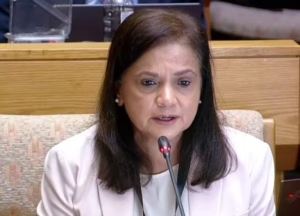Housing advocacy group Ndifuna Ukwazi (NU) has raised formal objections against a planned 40-storey mixed-use redevelopment project in Cape Town’s Central Business District (CBD), expressing apprehensions about its impact on the city’s affordable housing landscape. At the heart of their concerns is the inclusion of 442 micro-apartments, which, according to NU, may aggravate the ongoing housing crisis in the city.
In a recent press release, NU voiced its worry that these micro-apartments could be converted into short-term rentals, potentially diminishing the availability of long-term housing for Cape Town residents. The group argues that the proposed units, sized between 15 and 30 square metres, may primarily serve investors looking to maximise profits rather than genuinely address the urgent housing needs of local communities.
The developer has promoted the redevelopment as a contribution to expanding housing options in the CBD, though NU contends that no firm commitment has been made to include affordable housing within the project. This lack of commitment, the group argues, suggests that profit motives may be taking precedence over the need for accessible and inclusive housing solutions.
“Micro-apartments may appear cost-effective on the surface, but they ultimately serve as a vehicle for profit maximisation rather than addressing the urgent need for inclusive and genuinely affordable housing,”
stated Dr Jonty Cogger, an attorney at Ndifuna Ukwazi Law Centre.
Dr Cogger further highlighted that the limited size of these micro-apartments renders them unsuitable for families, who are often in greatest need of affordable housing close to economic centres. The redevelopment, NU claims, could have the unintended consequence of displacing local families, pushing them further away from employment opportunities and reinforcing socio-economic divides within Cape Town.
The activist group points to the growing trend of short-term rentals, facilitated by platforms like Airbnb, as a contributing factor to the city’s housing challenges. In recent years, the availability of long-term rental units has diminished, particularly in central areas, as property owners have opted to pursue the higher profits often associated with short-term leases.
According to NU, allowing such a large number of micro-apartments to enter the market without stringent affordable housing requirements risks further exacerbating these issues. They argue that, unless affordability quotas are implemented, the most vulnerable residents will face increased barriers to housing access.
The broader implications of the redevelopment are not lost on NU, especially as Cape Town embarks on a period of economic recovery following the COVID-19 pandemic. The group is urging the Municipal Planning Tribunal to take a firm stance in promoting equitable housing policies that could benefit all Cape Town residents, not just those with the means to afford premium rental prices.
“This development risks pushing local families further from economic hubs, reinforcing patterns of exclusion and inequality,”
Cogger warned, underscoring the long-term effects that unchecked development could have on spatial justice within the city.
For NU, the need for affordable housing has become a pressing priority, especially in light of Cape Town’s recent growth. They maintain that any major redevelopment in the CBD should include a provision for affordable units, which would ensure that lower-income households also have access to these spaces, rather than being gradually edged out by high-priced, investor-focused housing. By urging the Municipal Planning Tribunal to enforce an affordable housing quota, NU hopes to encourage a more inclusive approach to urban development.

















